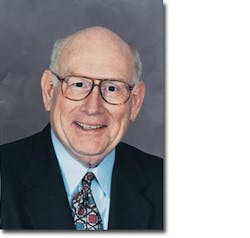Vern Raburn, head honcho of Eclipse, needs money and is seeking financing from his customers. He’s offering buyers a discount if they pay cash up front. Some see this as somehow wrong; danged if I know why. It seems simple: if customers like the deal, they take it; if not, they don’t. He’s trying to offer a deal they can’t refuse. The customers are all big boys and girls — they make their own choice.
Ah, the more things change…
Why does Eclipse need money? A myriad of reasons, all of which have been well publicized and none of which is important to this story.
Actually, Raburn is in good company. I wonder if he knows that the late Henry Ford, the very epitome of a successful industrialist, once faced the same basic situation — an immediate and critical need of funds — and handled it by going to his customers.
When I read of Raburn’s plan, the Ford story (first told to me by my father during my teen years) came to mind. I immediately wondered if Daddy (who could dress up a story marvelously) got it right. Research showed that he did.
During the last days of the Model T, Ford faced a huge inventory glut and heavy debt, including millions in taxes due. He went to work. As explained by The New York Times (July 24, 1921), Wall Street bankers flocked to Detroit to lend Ford money. Some say it was the other way around: that Ford went to New York seeking the bankers. The facts are that they indeed did offer, he considered it carefully, then turned them down flat.
Ford’s direct customers were his dealers, who were private businesses much like today. Dealer relationships being different from relationships with retail customers, Ford transferred the inventory to his “customers” more directly and forcefully than Mr. Raburn can, and probably more forcefully than he even wants.
Ford said that the dealers had made a lot of money with Ford over the years, and now Ford needed their help. Then he shipped to them train carloads of automobiles they had not ordered and often did not want. The cars came with a draft for full payment. Dealers could honor the drafts or send the cars back. Most of them took a deep breath and honored the drafts.
This plan, aided by stringent new efforts throughout the Ford company, including price cuts, turned the tide. The New York Times article was a celebration of what they called Ford’s “most remarkable achievement.”
The biggest difference twixt Raburn’s plan and Ford’s? The threat, implied or otherwise, that dealers who didn’t go along would cease to be dealers. Raburn is offering enticements and real rewards to his customers.
Here’s hoping that Vern Raburn’s plan works. After all, the VLJ is already a “remarkable achievement.”





